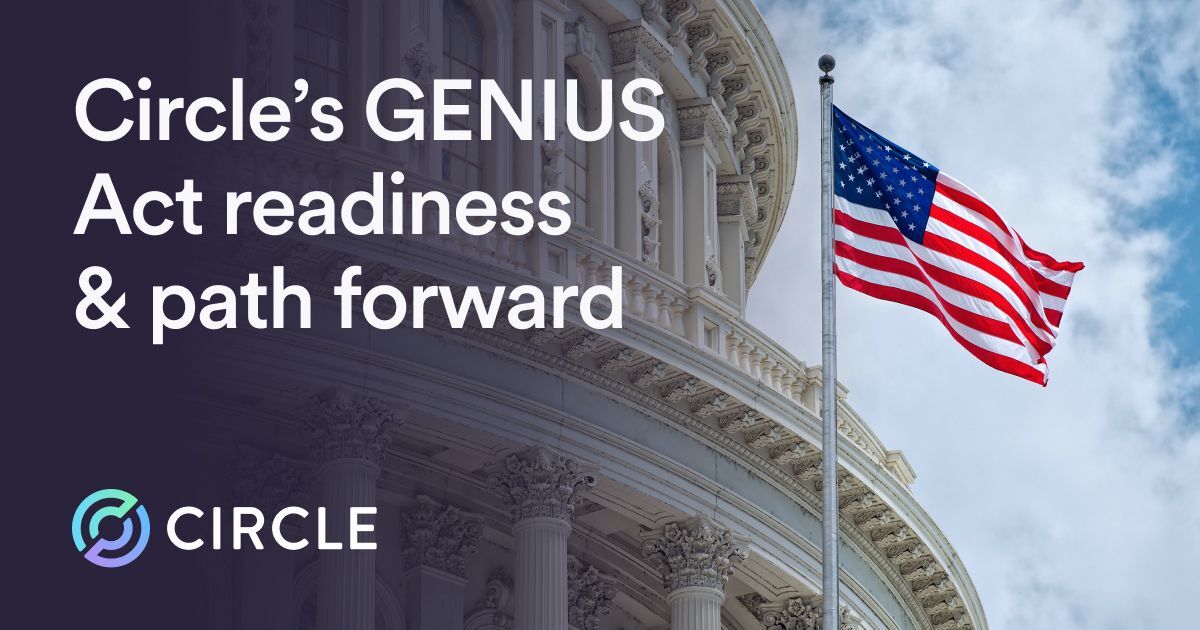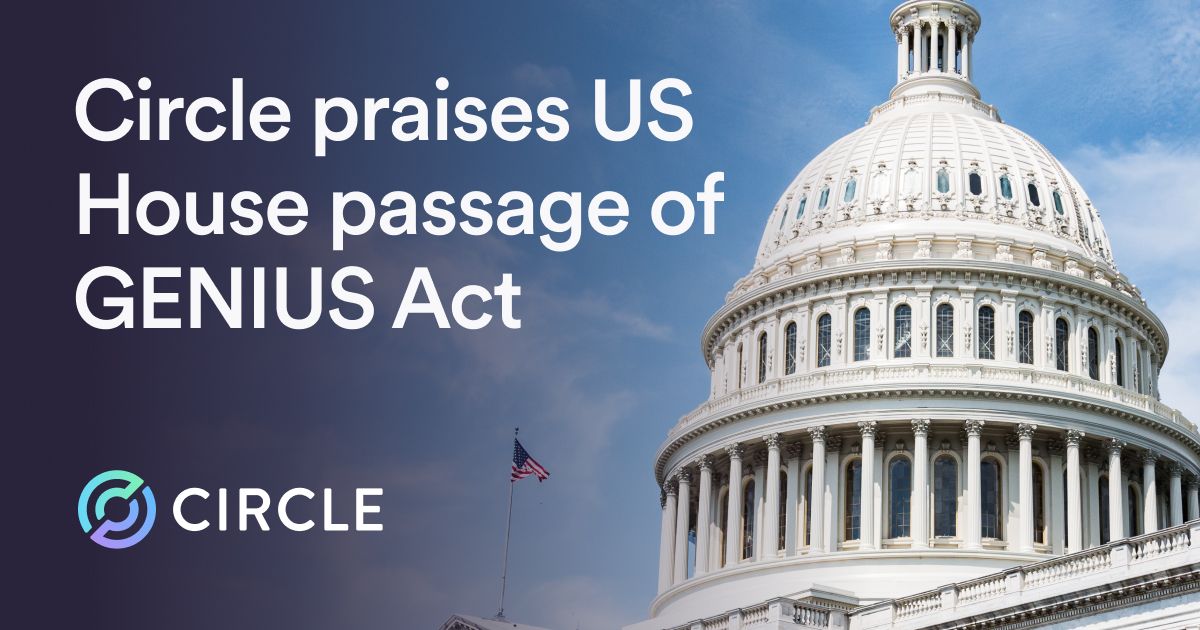New research from Circle proposes a risk-based capital framework for stablecoins and other stable value tokens, and why it is needed with the advent of tokenized finance.

The rise of tokenized finance, especially stablecoins and other stable value tokens, has introduced new dynamics and challenges for how financial institutions manage and assess their capital needs. In a new study, three of Circle’s top financial leaders - Chief Economist Gordon Liao, Treasurer Dan Fishman and Chief Financial Officer Jeremy Fox-Geen - propose a risk-based capital framework designed to adapt to the distinct characteristics and risks inherent in stable value tokens. Their paper, titled 'Risk-based Capital for Stable Value Tokens,' demonstrates how a risk-based capital framework can establish a foundation for safety and soundness in tokenized finance.
Put simply, capital is the difference between a financial institution’s assets and its liabilities, and it serves as a buffer against potential losses. The concept of capital adequacy has long been a cornerstone in the traditional banking sector, designed as a safeguard to help ensure that institutions can weather financial shocks, maintain customer confidence and prevent runs. Capital serves similar functions for stablecoins and other stable value tokens. However, the tokenized nature of these digital assets presents a unique set of characteristics that require more purpose-built capital standards distinct from those proposed by the Basel Committee on Banking Supervision and other global banking regulators.
In their paper, the Circle executives propose the Token Capital Adequacy Framework (TCAF), a risk-based method designed to strengthen the balance sheets and operational structures of stablecoin issuers as well as those of other stable value tokens. The framework provides a robust methodology to assess, manage, and apportion capital for stable value tokens so they can better withstand potential shocks and maintain stability. Unlike traditional banks, stable value tokens are transferred on programmable blockchains or distributed ledgers, generating unique financial and operational risk profiles that cannot be well managed by Basel-style capital requirements. Moreover, existing capital frameworks that rely on fixed ratios do not account for the reserve differences with stable value tokens, nor do they cover risks such as susceptibility to coordinated runs and technology-driven operational risks.
TCAF highlights
- Developed to assess and manage capital needs based on quantitative assessment of market, credit, and operational risks specific to tokenized assets.
- Designed to be adaptive; applicable to various token backings such as fiat, crypto assets and synthetic assets; and to operate independently of reserve and liquidity standards.
- Emphasizes risk sensitivity and stress testing over fixed-ratio methods, such as those adopted in the European Union's landmark Markets in Crypto-Assets (MiCA) regulatory framework.
- Requires internal stakeholder input in determining non-financial risk, helping to ensure accountability and better risk management.
Reshaping operational risk frameworks for the digital age
The TCAF can also be applied by banks to manage operational risks, such as loss from failed or inadequate internal processes, or from external events such as cybersecurity events. A risk-sensitive capital framework with sufficient amount of internal accountability, as proposed by TCAF, provides a foundation for rewriting capital standards for operational risks more broadly for banks and non-banks. The paper notes that cybersecurity events for financial firms in recent years underscore the need to re-evaluate operational risks and provide a stronger feedback loop between technology decisions and balance sheet allocations.
Read the full paper here.


.jpg)

